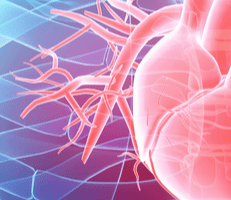Ventricular Fibrillation

Phoenix Heart
Cardiologists located in Glendale, AZ & Goodyear, AZ
Ventricular fibrillation is a heart arrhythmia that causes sudden cardiac arrest and represents one of the top causes of death worldwide. The experienced cardiologists at Phoenix Heart can help you prevent ventricular fibrillation before it happens or avoid another episode. To learn more about your risk or to schedule preventive treatments, don’t wait to book online or call the nearest Phoenix Heart office. The practice locations are conveniently located in Glendale, Goodyear, Scottsdale, Anthem, Black Canyon City, Cottonwood, and Avondale, Arizona.
Ventricular Fibrillation Q&A
What is ventricular fibrillation?
Ventricular fibrillation is an irregular heart rhythm (arrhythmia) that occurs when the muscles in the lower chambers of your heart (ventricles) twitch or quiver in a fast and uncontrollable way.
When these muscles fail to work properly, they can’t push blood out of your heart. That causes a sudden cardiac arrest.
What causes ventricular fibrillation?
The most frequent causes of ventricular fibrillation include:
- Heart attack
- Congenital heart disease
- Damaged heart muscle
- Heart muscle disease
- Loss of blood flow
- Electrocution accidents
- Potassium imbalances
- Aortic dissection
- Pulmonary embolism
Ventricular fibrillation can also occur after experiencing a sudden blow to the chest directly above your heart.
What are the symptoms of ventricular fibrillation?
If you have ventricular fibrillation, your heart quits working, and you stop breathing, lose consciousness, and collapse. Though it often happens suddenly and without warning, you may have symptoms before you collapse, such as:
- Chest pain
- Tachycardia (very fast heartbeat)
- Shortness of breath
- Dizziness
- Nausea
Sudden cardiac arrest due to ventricular fibrillation can cause death within a few minutes.
How is ventricular fibrillation treated?
Ventricular fibrillation requires immediate cardiopulmonary resuscitation (CPR) and shocking the heart into starting again using an automated external defibrillator (AED).
If you see someone collapse, AEDs are widely available in most public places. The device determines if the heart is beating and tells you if a shock is needed.
The team at Phoenix Heart may prevent this condition by finding and treating heart disease before an arrhythmia occurs.
After surviving ventricular fibrillation, the team can lower your risk of future episodes with medications or one of the following:
Implantable cardioverter-defibrillator (ICD)
A small device implanted under your skin monitors your heart rhythm. If it detects ventricular fibrillation, it sends a shock to the heart to stop the abnormal twitching.
Cardiac ablation
Your provider guides a long and narrow catheter through your blood vessels and into your heart. Then they use the catheter to administer hot or cold energy, blocking the irregular electrical signals causing ventricular fibrillation.
Coronary angioplasty and stenting
If you have a blocked artery, your provider uses a catheter to reach the blockage, push the plaque against the artery wall, and implant a stent to keep the artery open.
Coronary bypass surgery
In severe cases, you may need open heart surgery to reroute blood around the blocked artery.
If you need expert care for ventricular fibrillation, call Phoenix Heart or request an appointment online today.
Cardiology Services
-
 Cardiovascular Labmore info
Cardiovascular Labmore info -
 Congestive Heart Failuremore info
Congestive Heart Failuremore info -
 Electrophysiologymore info
Electrophysiologymore info -
 Heart Attackmore info
Heart Attackmore info -
 Nuclear Medicinemore info
Nuclear Medicinemore info -
 Clinical Researchmore info
Clinical Researchmore info -
 Structural Heart Defectsmore info
Structural Heart Defectsmore info -
 Ultrasound Testingmore info
Ultrasound Testingmore info -
 Echocardiogrammore info
Echocardiogrammore info -
 Vein Centermore info
Vein Centermore info -
 Women’s Heart Healthmore info
Women’s Heart Healthmore info -
 High Blood Pressure/Hypertensionmore info
High Blood Pressure/Hypertensionmore info -
 High Cholesterolmore info
High Cholesterolmore info -
 Coronary Artery Diseasemore info
Coronary Artery Diseasemore info -
 Stress Testingmore info
Stress Testingmore info -
 Weight Lossmore info
Weight Lossmore info -
 Arrhythmiamore info
Arrhythmiamore info -
 Atrial Fibrillationmore info
Atrial Fibrillationmore info -
 Peripheral Vascular Disease (PVD)more info
Peripheral Vascular Disease (PVD)more info -
 Chest Pain/Anginamore info
Chest Pain/Anginamore info -
Lymphedema & Phlebolymphedemamore info
-
Compression Stockingsmore info
-
Diagnostic Testingmore info
-
Interventional Cardiologymore info
-
Peripheral Arterial Diseasemore info
-
Bradycardiamore info
-
Tachycardiamore info
-
Ventricular Fibrillationmore info
-
Weight Management with Enara Healthmore info




















